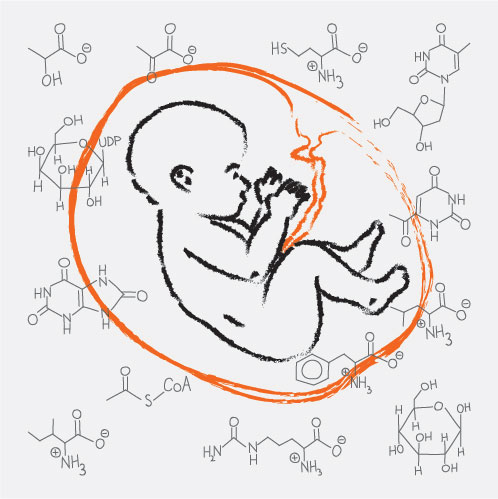Research
Inborn Errors of Metabolism (IEM)
There are more than 1200 rare, inherited metabolic diseases that are collectively known as “Inborn Errors of Metabolism (IEM)”. Examples of IEM include defects in amino acid (e.g. PKU, AKU, MSUD, urea cycle disorders), carbohydrate (e.g. galactosemia, glycogen storage disease), fat (e.g. VLCAD, MCAD, SCAD), and energy (e.g. PDCD, mitochondrial electron transport chain dysfunction) metabolism. Pathophysiology and therapies of the majority of IEM still remain to be established. These monogenic disorders are caused by inactive metabolic enzymes often resulting in toxic accumulation and/or deprivation of metabolite(s) proximal to the blocked enzyme reaction. We aim to (a) understand how an inactive enzyme in IEM leads to the disease pathology in cell-culture and model organisms, (b) introduce innovative strategies (chemical, enzyme-based, or genetic) to re-establish metabolic homeostasis, and (c) evaluate therapeutic benefits of such interventions. In an ongoing project, we are evaluating the therapeutic benefits of restoring redox homeostasis in mitochondrial electron transport chain (ETC) dysfunction.
Relevant Publication
Patgiri A, Skinner OS, Miyazaki Y, Schleifer G, Marutani E, Shah H, Sharma R, Goodman RP, To TL, Bao XR, Ichinose F, Zapol WM, and Mootha VK “An engineered enzyme that targets circulating lactate to alleviate intracellular NADH/NAD+ imbalance” Nature Biotechnology (2020) 38 (3), 309-313
Patent
Mootha VK, Bao XR, and Patgiri A “Extracellular redox enzyme system to alleviate disease” (2023) US Patent 11,661,586
